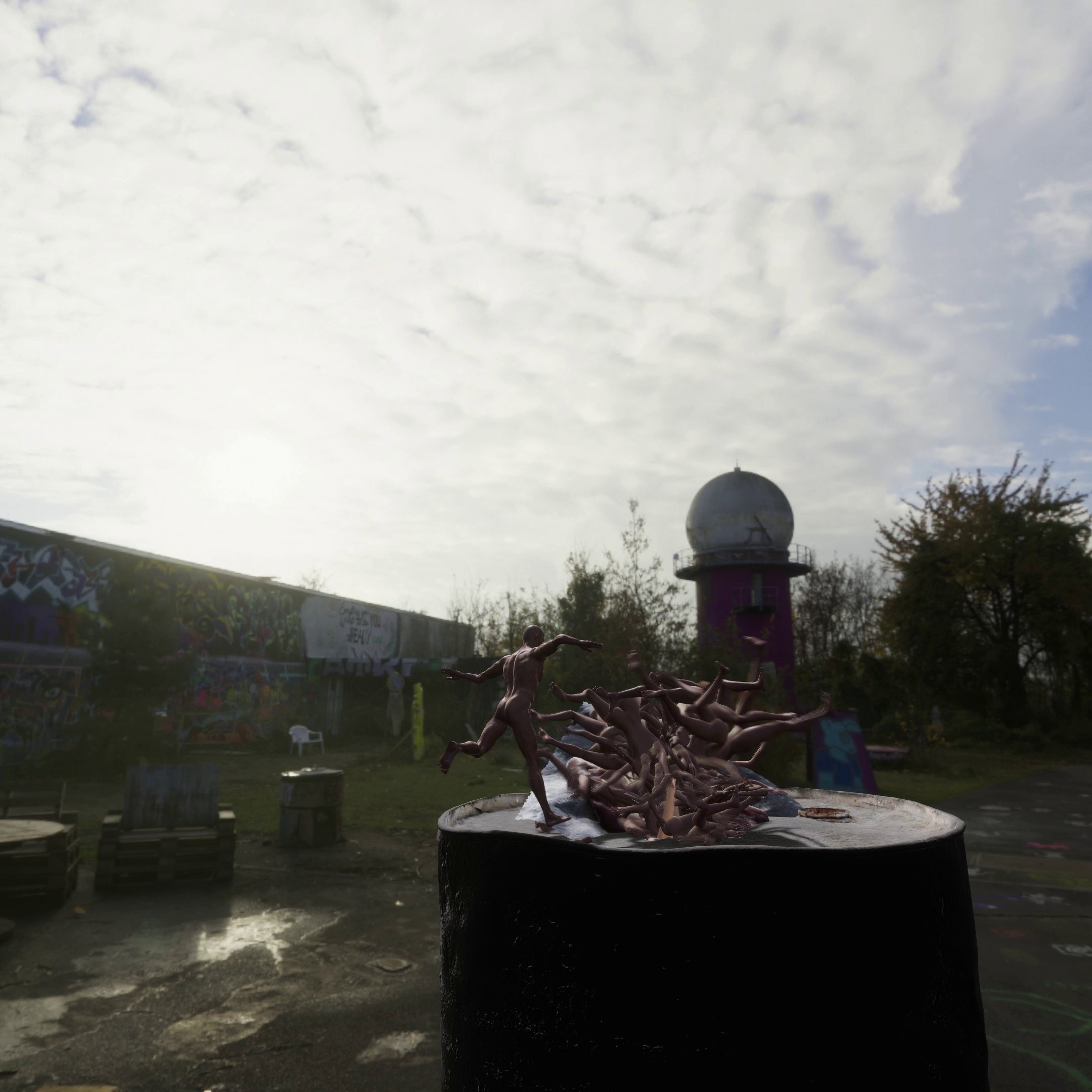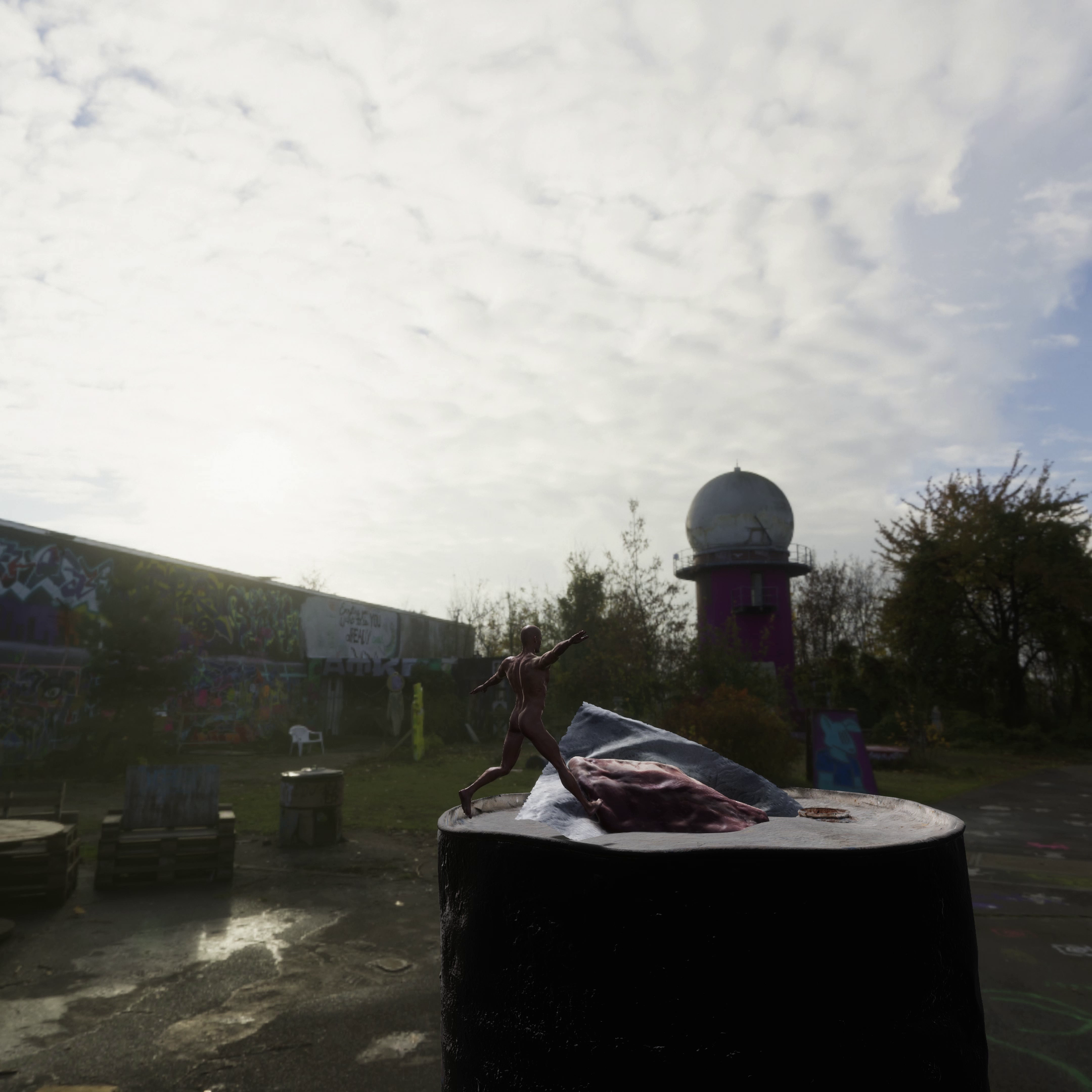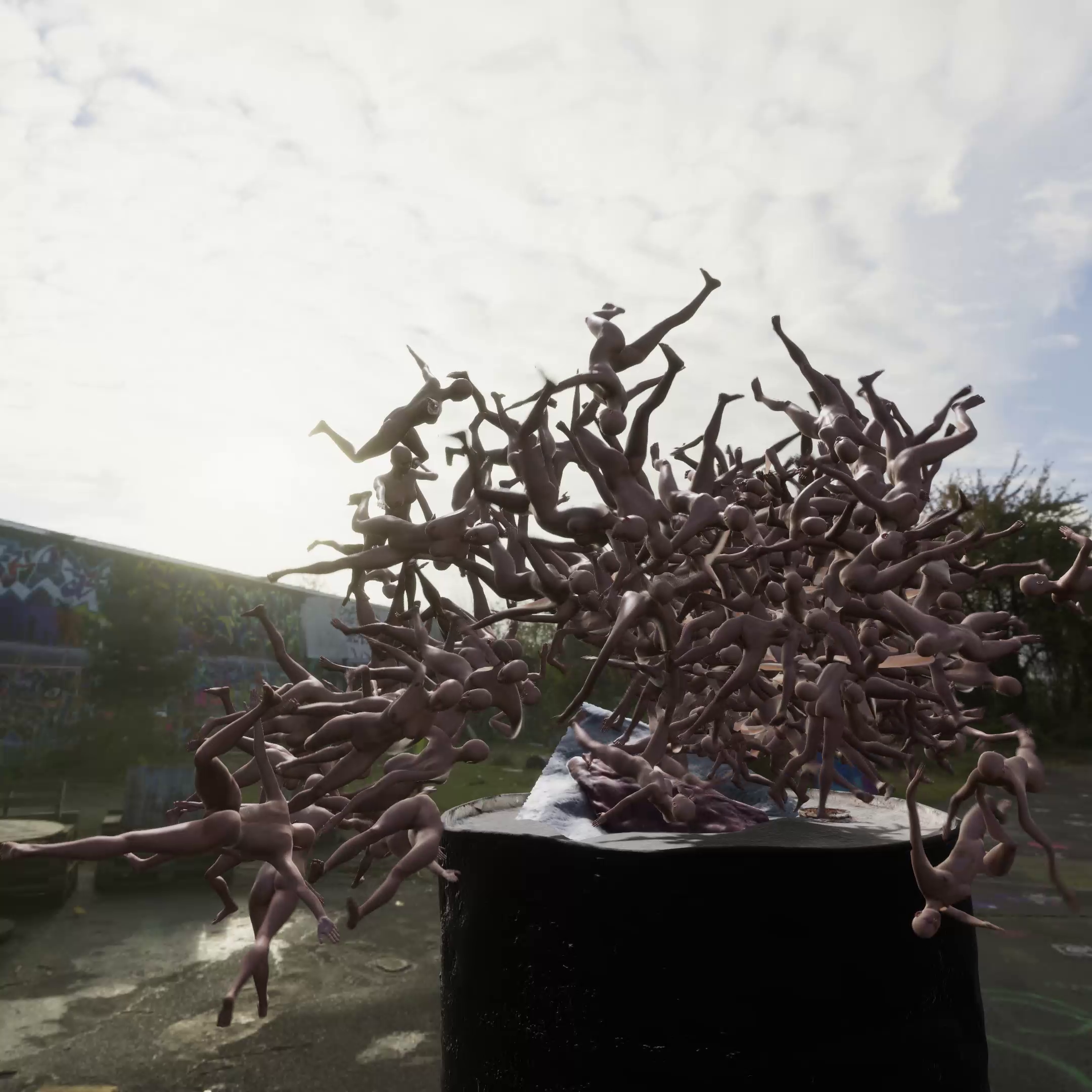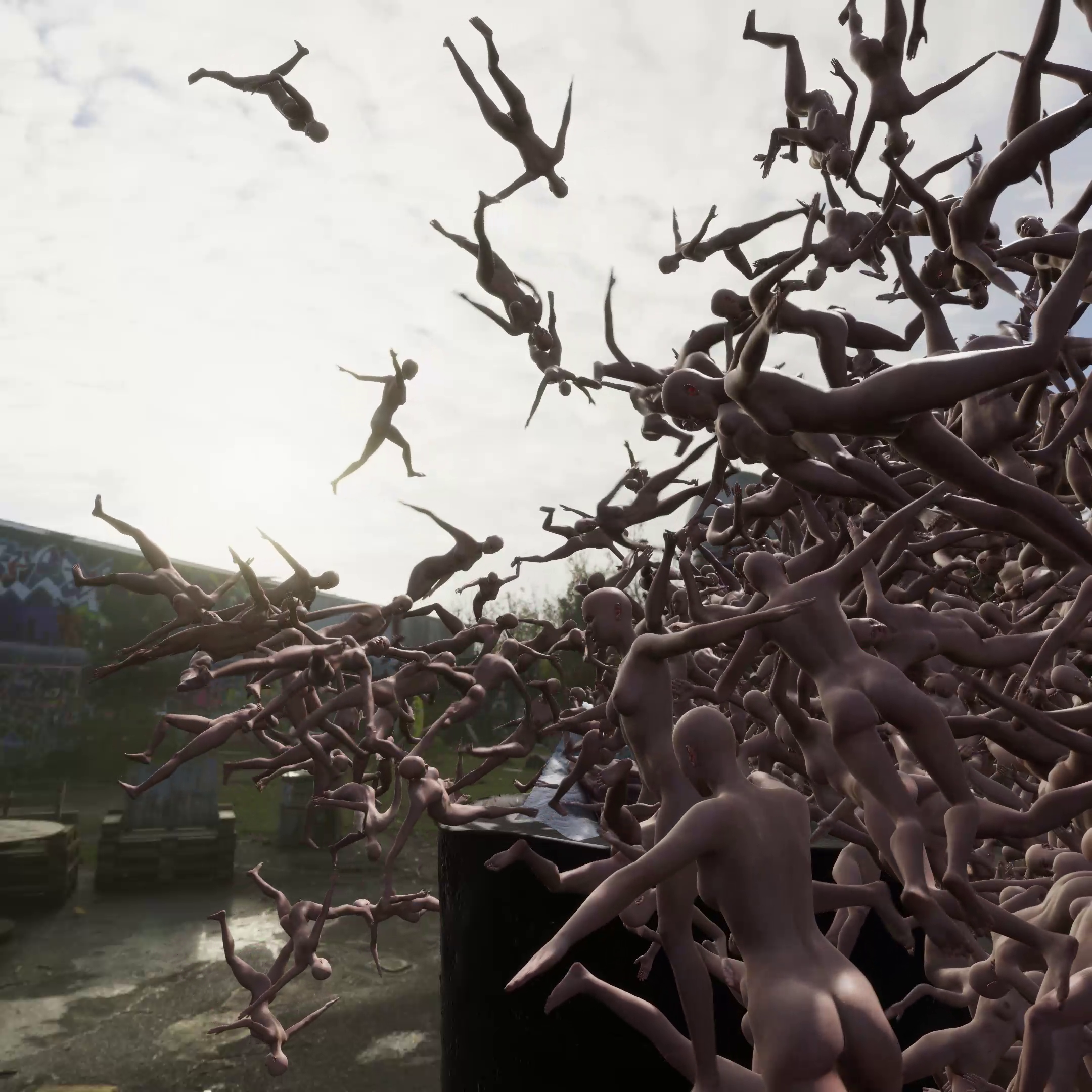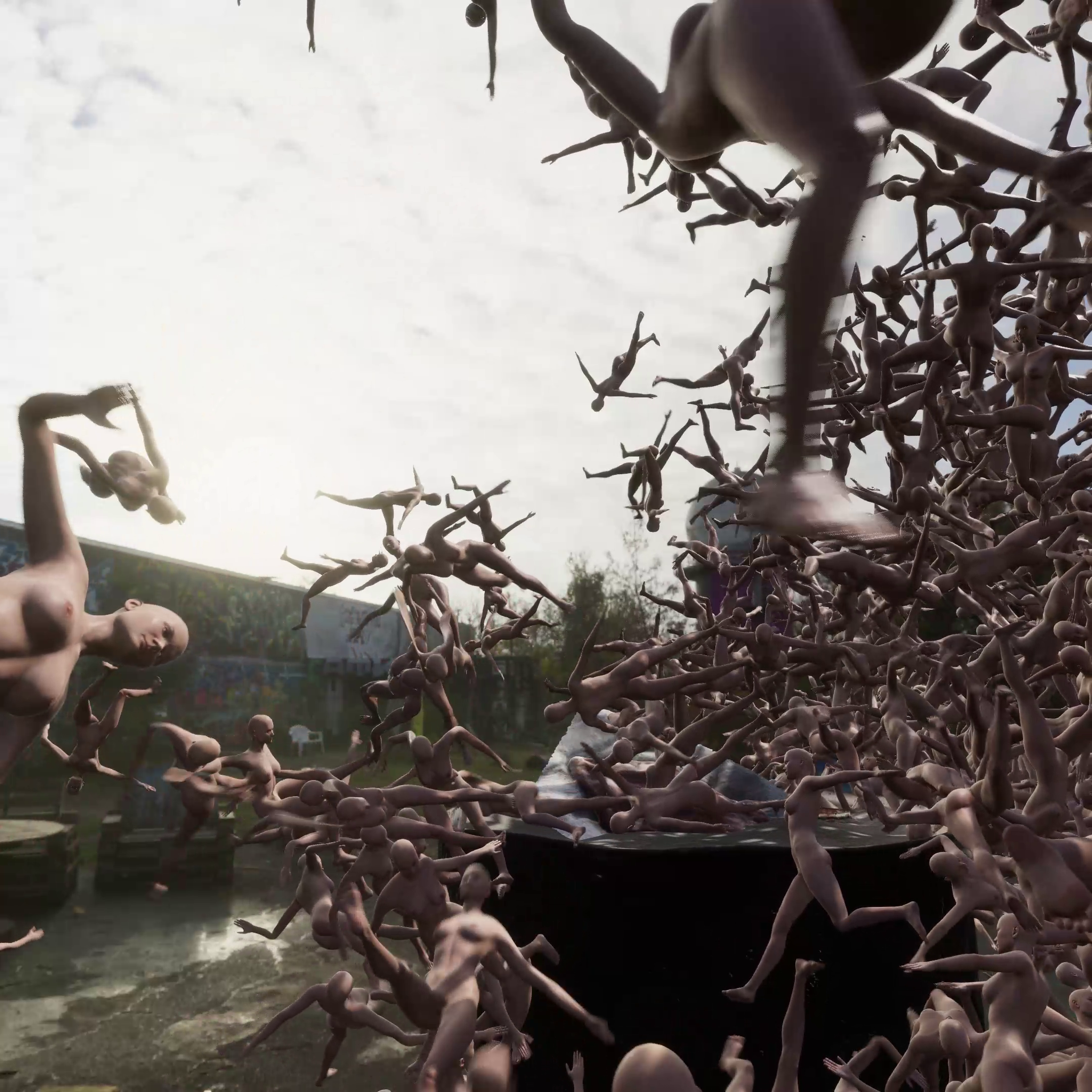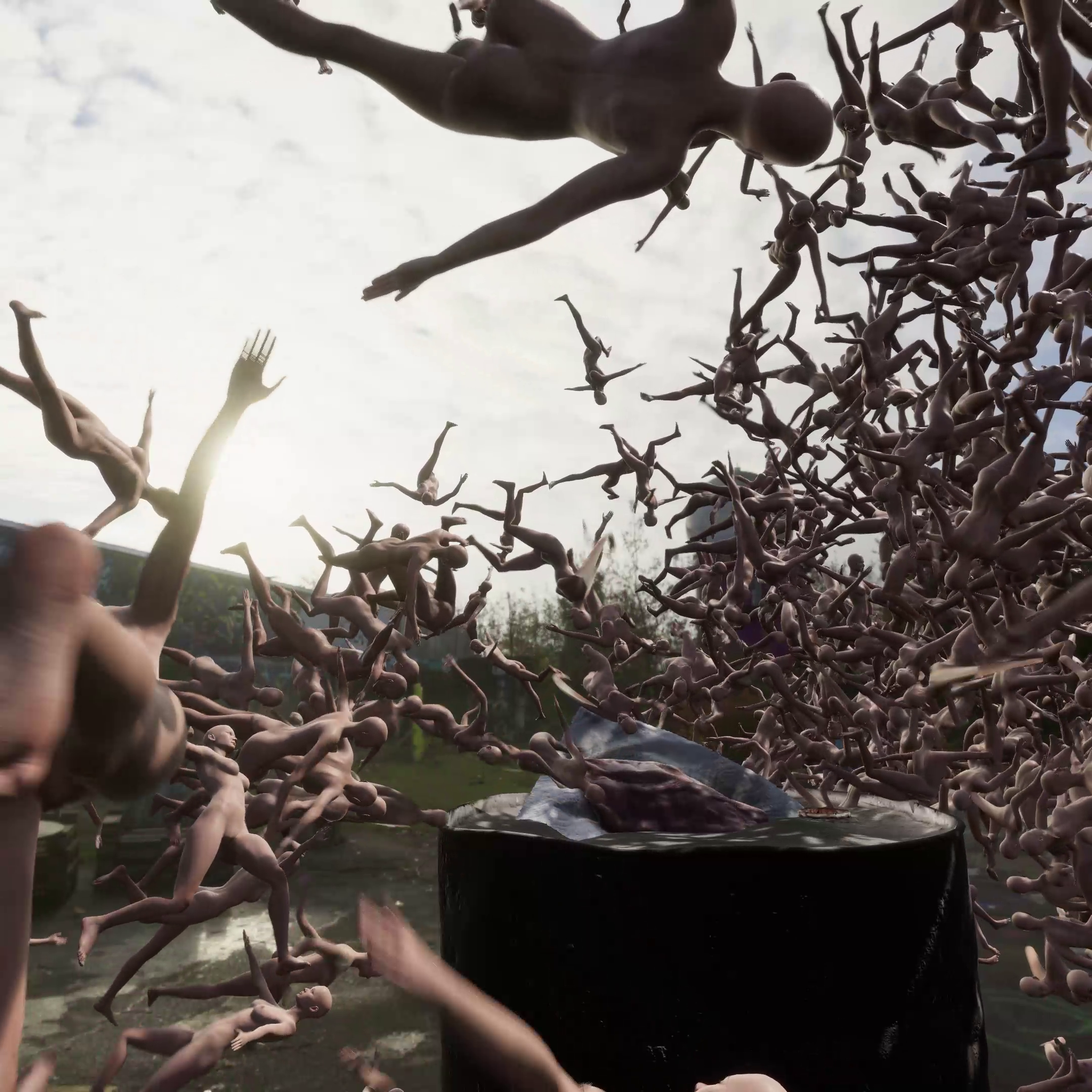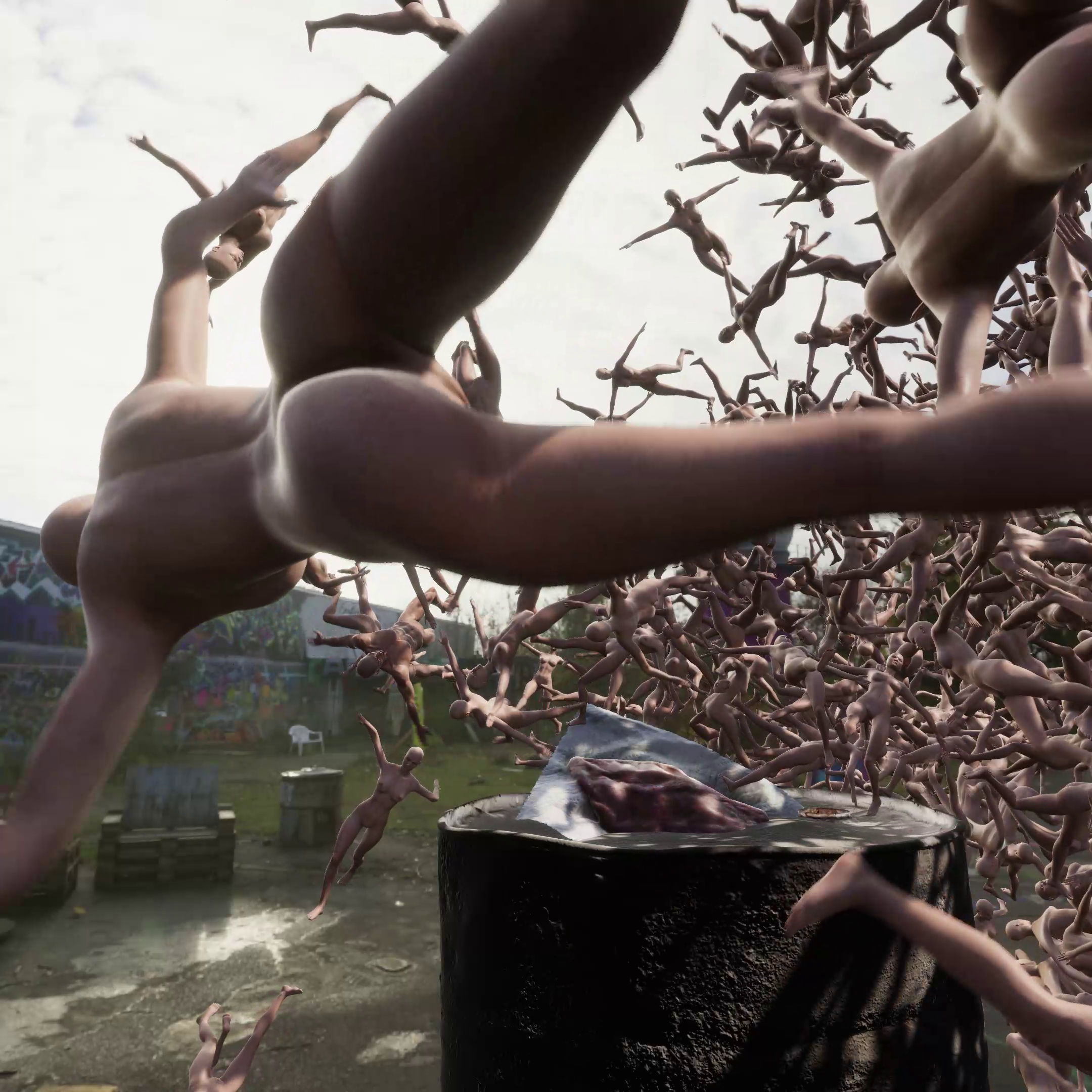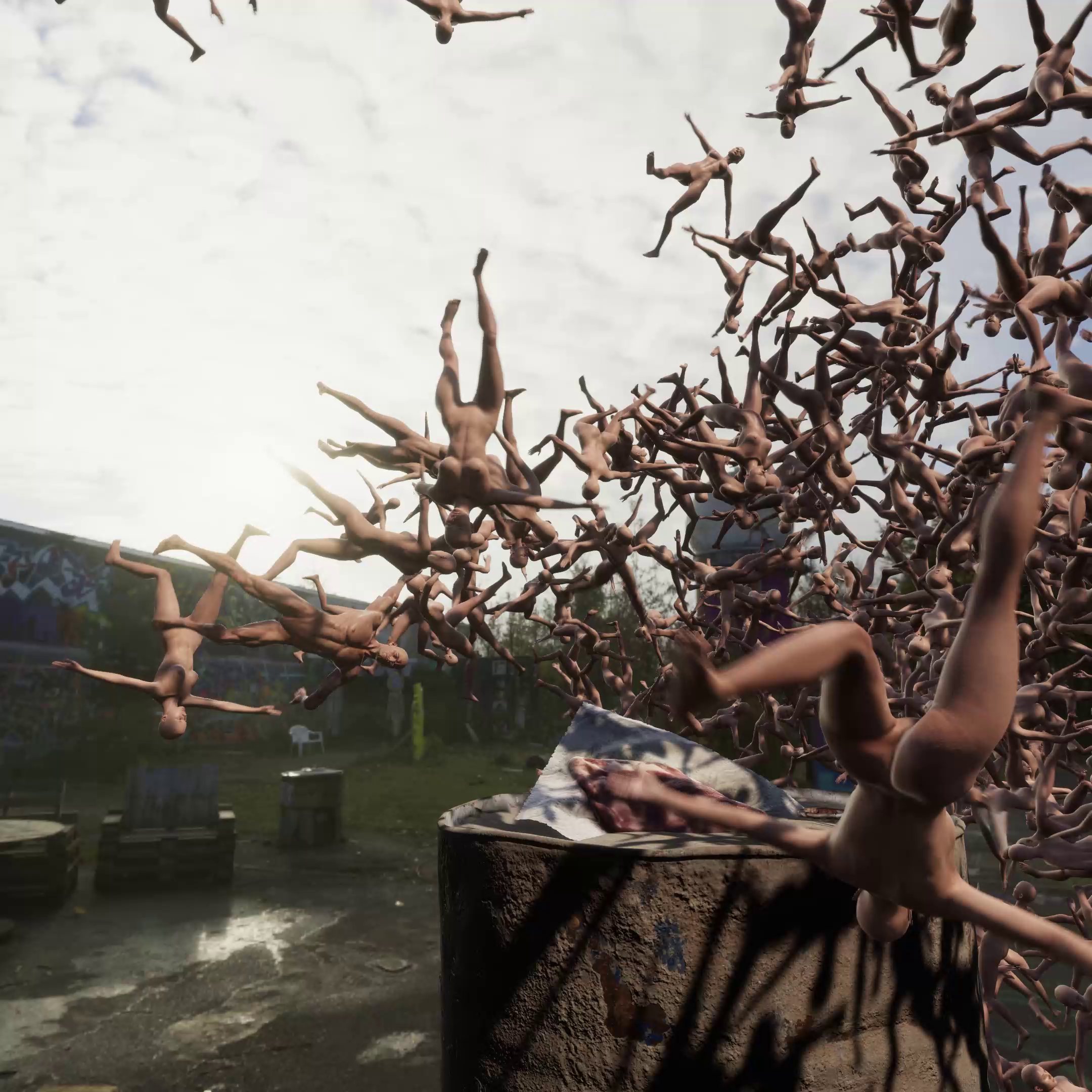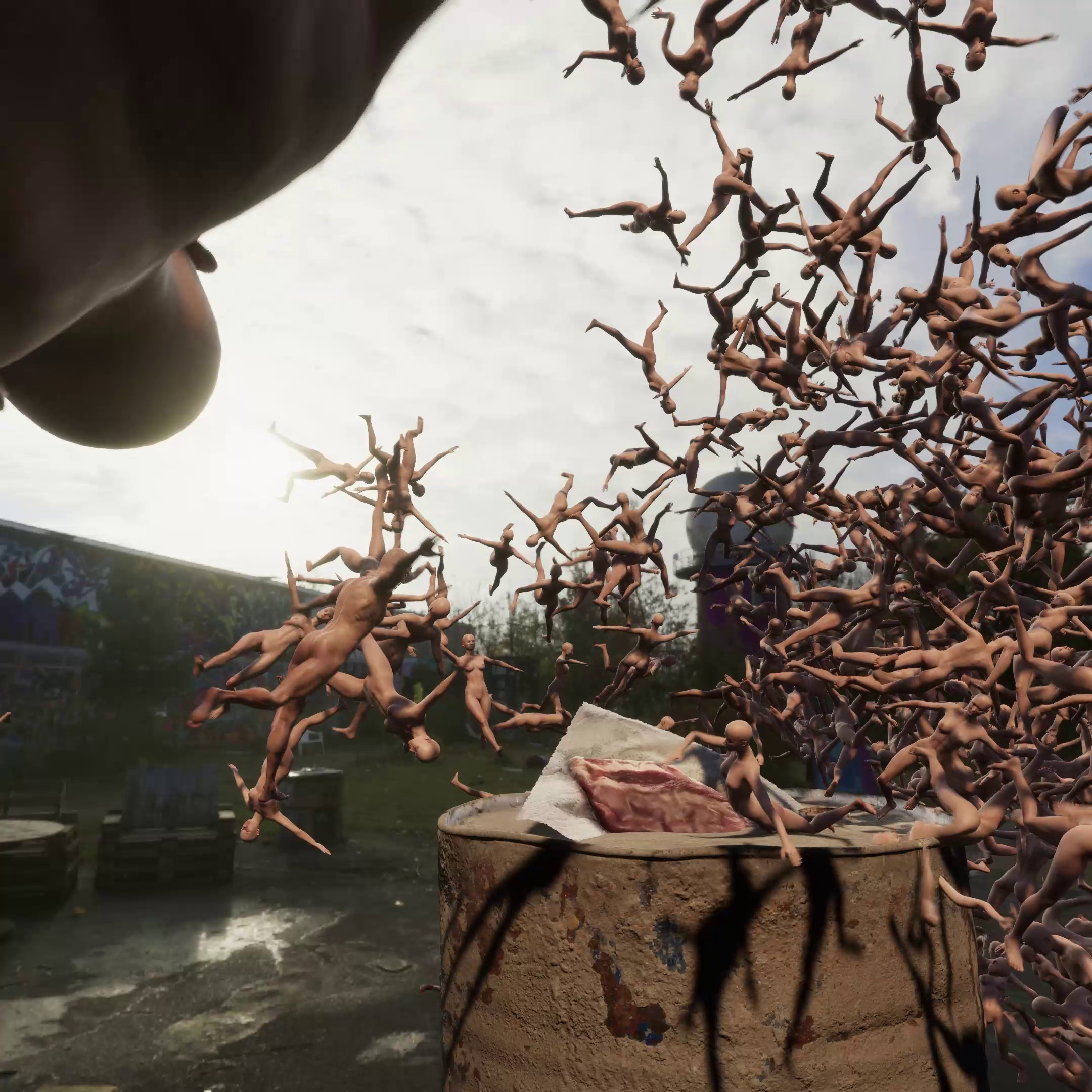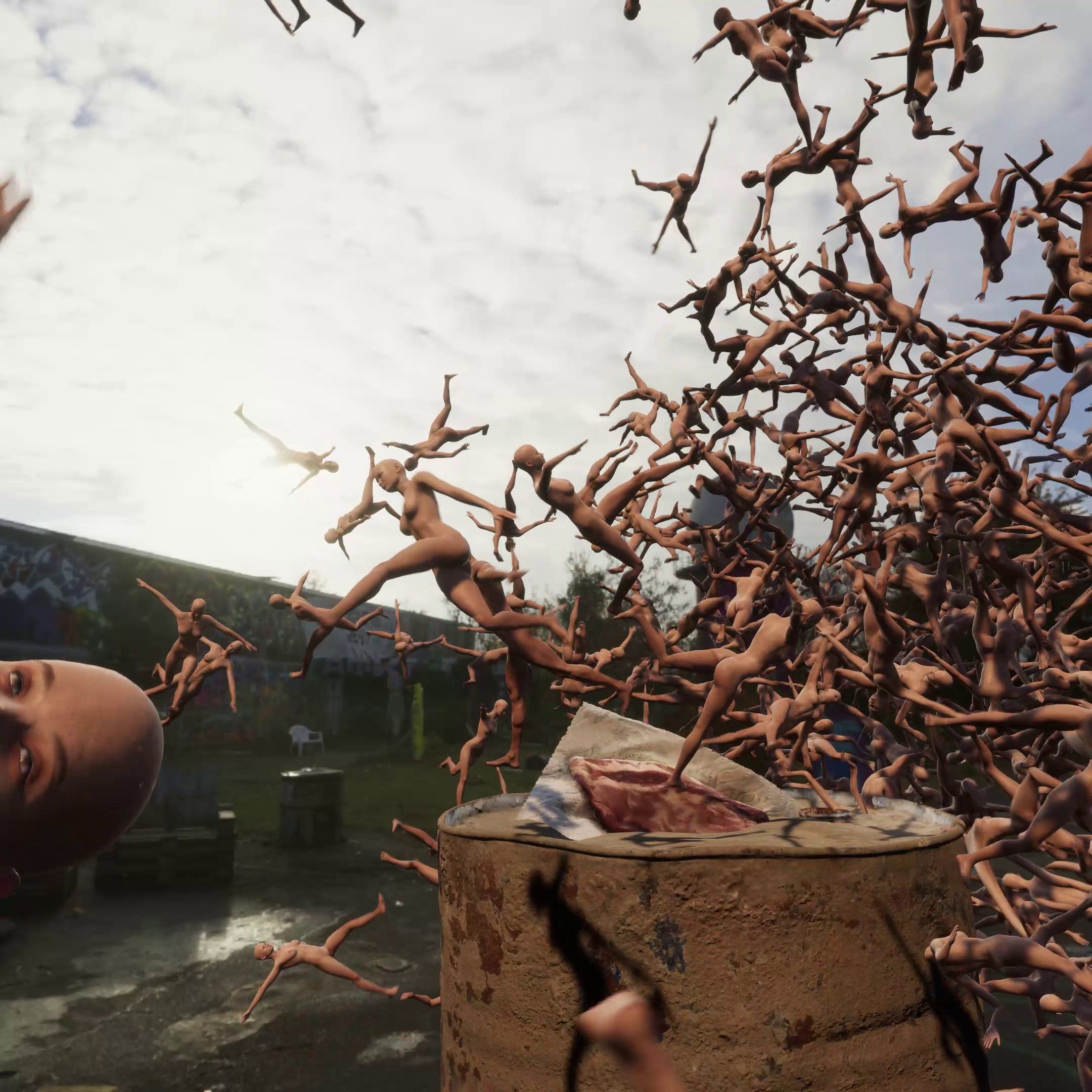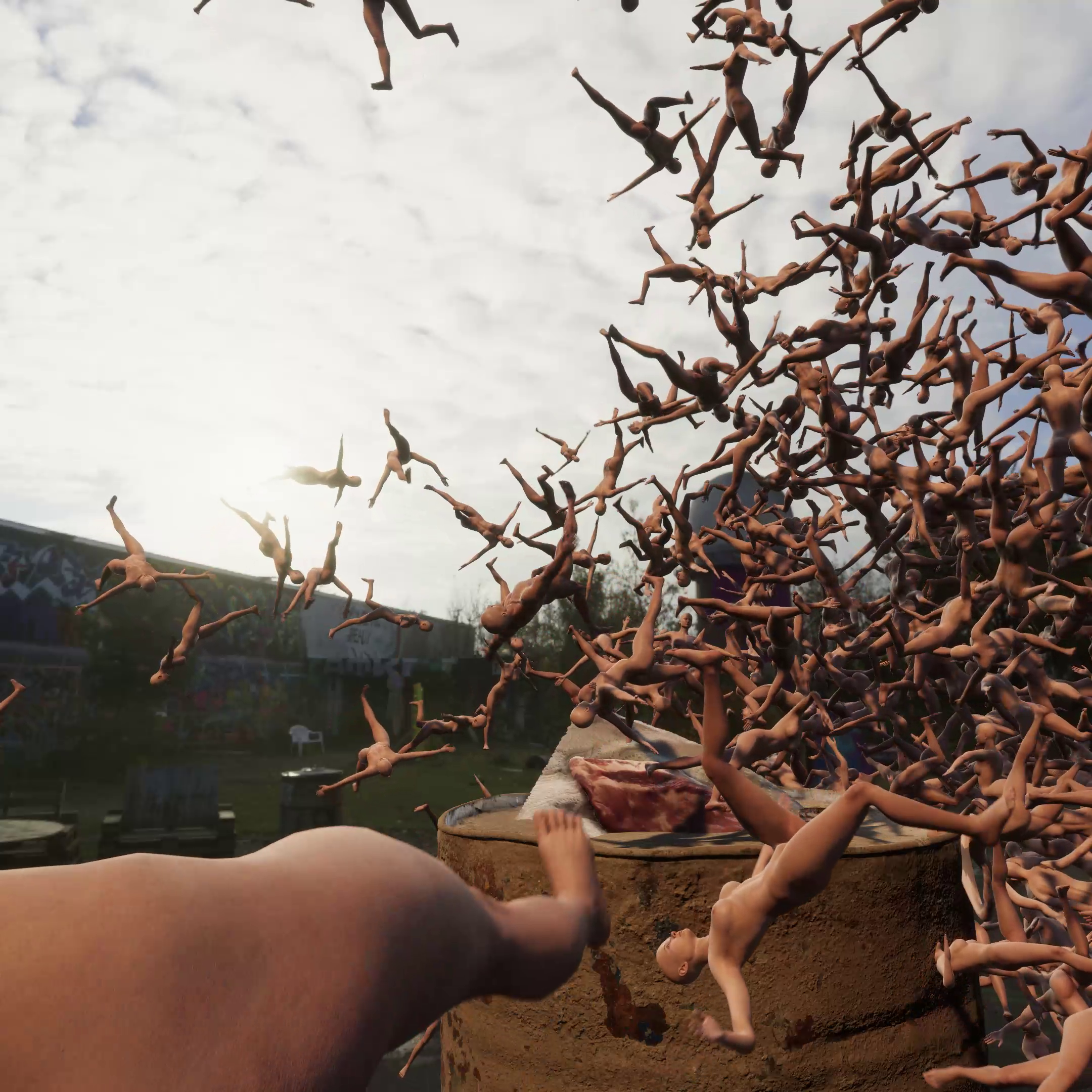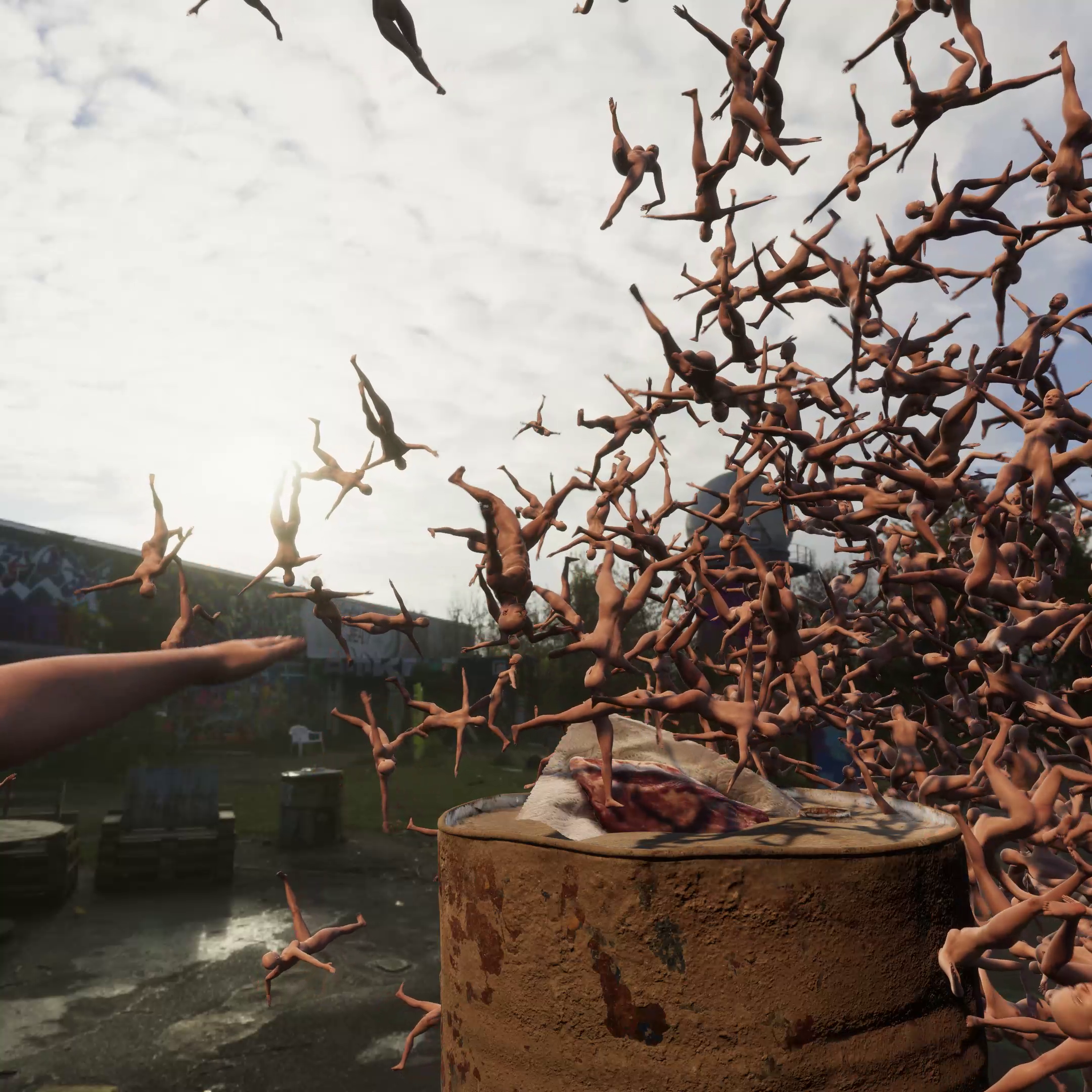ALL BEINGS ARE SUFFERING
digital video (1080x 1080), color, 7’ 01”, 2021, China and Canada
Created by Li Zhu
probably a tree with many branches and leaves.
probably a group of birds in a tree.
probably a large group of people in a water fountain.
probably a person on a tree.
probably a group of people swimming in a pool of water.
probably a group of fish swimming in the water.
probably a group of ants on a tree.
probably a spider on the web.
probably a close-up of hands holding flowers.
probably a person’s legs in a pile of branches.
probably a person holding a map.
probably a group of branches with leaves.
probably a dog sitting on a tree branch.
probably a large group of birds on a tree.
probably a woman doing a handstand on a tree branch.
probably a close-up of a tree.
face detected: 30-year old woman looking neutral.
face detected: 6 year old girl looking neutral.
no people could be detected.
(Different interpretations of the video work All Beings Are Suffering by Microsoft’s Seeing AI, an artificial intelligence application developed by Microsoft for iOS which uses the device camera to identify people and objects, and then describes those objects)
Li Zhu is a Chinese-Canadian artist and scholar who uses new technologies such as video games, virtual reality, artificial intelligence, and social media to create new ways of understanding reality. All Beings Are Suffering is part of an ongoing series titled Human Dust. Li Zhu has an MFA from the School of the Art Institute of Chicago. She received a B.A. in Visual And Intermedia Arts from the University of Quebec in Montreal, Canada. She studied at the École nationale supérieure des beaux-arts de Paris and McGill University. Her work has been exhibited in China, France, Canada, and the United States. Recent exhibitions include I Think (solo, 2017) in Guangzhou, China, ON AURA (group, 2021) in Montreal, and Backyard Stories (group, 2020) in Chicago. She is currently working and living in Chicago.
Matteo Bittanti: Can you briefly describe your upbringing? You grew up in Sichuan Province, China, correct? But then you received your formal education in Canada, France, and now you are studying in the United States. How did your understanding of the world change throughout your life, as you experienced so many different contexts?
Li Zhu: Yes, you are right. I grew up in China and lived and studied for quite a long time in Canada, France, and the United States. I guess that I have some kind of an innate, natural distrust and doubts about life, which makes my heart restless — I hope to find some answers, or some force is constantly making me travel far away to find solutions. Everywhere I go, I try as hard as possible to become a local. I learn their language, their culture, and try to become part of their community. Many years later, the seeds of these various cultures have taken root and sprouted inside my body, all entangled together. The result is very chaotic. Sometimes I feel like I'm going to go crazy, just like the world right now, with prejudices and misunderstandings among various ethnic groups. Very simple things are amplified by misunderstanding, become very complicated, or even out of control. I found that I did not find any simple answers to relieve myself. So much is lost in translation... The world is becoming more and more complicated, opaque, and I feel that my pain is getting more and more unsolvable. I feel entropy is rising around and inside me. I don’t even know how to describe this pain concisely and clearly. Maybe I should spend the rest of my life expounding my ideas.
Matteo Bittanti: On your website, you mention McLuhan’s famous mantra that “We shape our tools, then our tools shape us”. The Canadian scholar also argued that only artists are fully aware of their surroundings. He compared them to a radar, because they can perceive the effects of an emerging medium of a technology before they reach their “targets” — he had the tendency to compare media to weapons. How do you define the relationship between art and science, nature and technology, which is central to your practice? A corollary: What is technology to you? A friend or a foe, a threat or a possibility for newfound expression?
Li Zhu: There was a time, in the past, when I was convinced that all our pain and misfortune were caused by our inevitable death. In other words, death is the root of all anxiety and the source of all struggles. My assumption was simple: if there is no death, then there would be no accumulation of wealth, thus no inheritance, no capital, and no class conflicts. Then all the suffering of this world could be solved. I came to the conclusion that the arrival of technological singularity (a hypothetical point in time at which technological growth becomes uncontrollable and irreversible, resulting in unforeseeable changes to human civilization, Ed.) might fundamentally solve the ultimate problem of death. So I became very interested in technology. However, new issues slowly began to appear. I realized that if there were no death, all the pain in the world would disappear, but so would happiness, such as love and family. In other words, the very foundation of humanity rests upon the inevitability of death. This seems to be a straightforward idea. So I began to ponder what a social model in which death became extinct would look like. At the same time, I realized that in a singularity-based society, another critical issue would inevitably arise: private life would likely disappear. An advanced technological society may turn all individuals into a collective whole, a monolithic entity. In such a context, privacy and freedom would also vanish. Information technology eventually turned people themselves into human-bits. When I realized this, I finally grasped the true meaning of McLuhan’s words.
Matteo Bittanti: Can you describe the origin and development of the Human Dust series? Throughout the various iterations, a motif seems pervasive: humans behave like a virus spreading uncontrollably. What was the main inspiration behind this project and how do you foresee its evolution? In the latest installment of your series Human Dust you juxtapose realistic backgrounds, mostly industrial, with digital figures made of synthetic flesh who make up a mesmerizing choreography, an uncanny dance. What is the underlying principle of your project?
Li Zhu: As I previously mentioned, I tried to foresee the critical issues of a future society. When I say “future” I do not mean “distant” or “remote”. I am conceiving a situation that will happen soon: an information society where multiple intelligences coexist. In such a society, there might be humanoids that could form families, and enact some form of gender cooperation, human-like machines that are very similar to humans, and perhaps other kinds of sentient creatures that are entirely different from humans, such as various low-pixel robots. At the beginning of the Human Dust series, the idea was to show this kind of rapid self-production and replication of human-like intelligence: these identical bodies can be reproduced endlessly. Like the kind of robots mentioned in the Turing Test: they look like humans and can do everything humans do, but we don’t know whether they have consciousness. From the current technological development, the reproduction of such humanoid robots will no longer be based on gender cooperation. These are just the ideas that my rationality expounded. Obviously, in the process of the realization of this work, every minute and every second has been mixed with my anxiety and sorrow as a human being. Gradually, I even felt that I was venting some of my mental pressure about COVID-19 throughout such images. My teacher, Professor Sullivan, described it as a kind of psychorealism. I think it makes sense to me.
Matteo Bittanti: You mention have lived in so many different contexts. I wonder if all the creatures that are exploding could also be interpreted as fragments of your personality, bits of yourself, and not just humanoids created by AI. Am I completely off? Is this related to the notion of psychorealism that you mention in the interview?
Li Zhu: Yes, definitely! I think you just pointed out something that I didn't clearly realize when making this work. And, of course, all these details are part of my mental state, a bit of memory, or personal history… For example, memory fragments of a crowded subway.
Matteo Bittanti: In the video titled Human Dust, two “thumb up” figures witness the diabolical spawning of humans. Do they represent Facebook specifically or, metonymically, social media? I noticed that they also return in your Game Art series, like recurring characters…
Li Zhu: Yes, exactly, your interpretation is correct. I believe that “thumb up” was and is the psychological key that turns and continues to turn real humans into human-bits.
Matteo Bittanti: I would like to know more about the video format that you choose: why did you opt for a square format for this particular artwork, All Beings Are Suffering?
Li Zhu: Yes, I chose the square size which is friendly to mobile phones. My assumption at the time was that this work would be played on many small screens. I imagined that there would be many mobile phones forming a vast installation and playing this unending project simultaneously. You know, behind this video, there is actually a Unity-based project, in which I made a small piece of code that automatically generates humanoids in an invisible glasshouse. In theory, with enough time, these “people” will all eventually escape from the glasshouse. I then added an Arduino-based photosensitive system to tracking sunlight intensity in the real world and using real-time data to control some of these humanoids’ movement. Thereby, these “people” will work for their escape mission only during the daytime and rest when dark. It may take days to weeks for all these “people” to escape from the glasshouse. However, since most offline exhibitions were canceled during the COVID-19 period, I didn’t get a chance to bring this idea to life.
Matteo Bittanti: Unlike most of the videos in the series, All Beings Are Sufferings has no soundtrack. Why did you opt for silence for this specific piece?
Li Zhu: I didn’t realize that I didn’t put any sound on this work until you mentioned; It was the outcome of my subconscious behavior, I guess. As I was producing this series, this specific work came to be at a very painful moment for me. I think this pain has been deeply buried in everyone’s heart. At this moment of suffering, people are trying very hard to show optimism. We want to hide our pain. But I became so aware of the pain as I was working on this project. I think I was out of control. The silence itself seemed to imply that I simply could not cope with the sudden surge of pain.
Matteo Bittanti: How has the pandemic affected your practice? And what have you been working on lately?
Li Zhu: The pandemic itself highlighted several problems in a concentrated manner. For example, behind whether to wear a mask, there are cultural differences, conflicts of interests between capital and political struggles. I regret to find that even in the United States, human lives still rank behind these struggles. Of all these issues, I am most concerned about the impact of technological dictatorship on people’s perception worldwide. Information technology seems to eliminate institutional differences based on ideological systems; dictatorship and brainwashing are more present than ever.
At present, I am continuing my work, which is to use art games to envision different scenarios of the future society, trying to be as detailed as possible. The question that I am trying to answer is: In a society where different intelligences coexist, what kind of social structures will be needed?
Matteo Bittanti: Is there anything you would like to add?
Li Zhu: In the most chaotic and complex March 2020 in the United States, I thought a lot about the pandemic in-depth and I wrote an article. I want to share this article with you. Here is a Google Doc. If it sounds like a college essay because it was indeed written as a course requirement.
All Beings Are Suffering
digital video (1080x 1080), color, 7’ 01”, 2021, China
Created by Li Zhu, 2020
Courtesy of Li Zhu, 2021


